The Front Page

Brief Synopsis
Cast & Crew
Lewis Milestone
Adolph Menjou
Pat O'brien
Mary Brian
Edward Everett Horton
Walter L. Catlett
Film Details
Technical Specs

Synopsis
Chicago's ace reporter Hildy Johnson wants to quit newspaper work and get married, but his editor, Walter Burns, is determined to keep him on the job. Hildy refuses to talk to Walter, knowing his persuasive powers, so Walter sets off a fire alarm outside the apartment of Hildy's fiancée, Peggy Grant. Unable to resist, Hildy runs to the street, after which Walter corners him and takes him out for drinks. While the two men drink, Walter reminisces about the great stories that Hildy covered and paints a boring picture of married life. Hildy manages to escape, and drops in on the press room at the courthouse, where the reporters are waiting for the hanging of Earl Williams, who killed a black policeman. The reporters want Williams hanged at five in the morning, so they can make the morning edition with their stories. The politicians, on the other hand, want him hanged just before the election, so they can count on a large black vote. Hildy learns that a new psychiatrist has been called in to examine Williams. During the examination, Williams escapes. After the other reporters run from the room to investigate, Hildy bribes someone to tell him the story of Williams' escape using the money Peggy gave him for their trip to New York. Peggy follows Hildy to the press room, complaining that he always puts the paper ahead of her. In the midst of the manhunt, the governor's reprieve arrives, but no one sees the messenger except the sheriff and the mayor. They send the man away, asking him to come back after the hanging. While Hildy is alone again in the press room, Williams climbs in through a window. Hildy hides him in a roll top desk. Molly Malloy, a prostitute who helped Williams after he shot the policeman, sees Williams' hiding place, and when the other reporters are about to discover him, she jumps out the window to distract them, killing herself. In the confusion, Walter arrives. He is delighted with Hildy's work, flattering him with the notion that he has brought down a government. Furious at being kept waiting, Peggy breaks off her engagement. The reporters find Williams in the desk, and the sheriff arrests Hildy and Walter, but just then, the man with the reprieve returns, to Walter's delight. Peggy returns and Hildy quits and proposes to her again. Walter gets sentimental, and realizing that Hildy really doesn't want to leave the newspaper business, Peggy says she will stay in Chicago. Hildy insists on leaving and Walter gives him a watch as a going-away present. As soon as Peggy and Hildy leave the room, however, Walter calls the police at the train's first stop, asking them to arrest Hildy, who he claims has stolen his watch.

Director
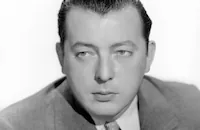
Lewis Milestone
Cast
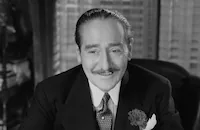
Adolph Menjou
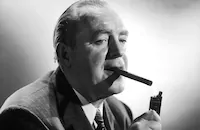
Pat O'brien

Mary Brian

Edward Everett Horton

Walter L. Catlett
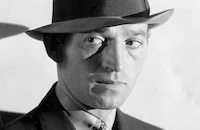
George E. Stone

Mae Clark

Slim Summerville
Matt Moore
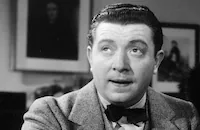
Frank Mchugh
Clarence H. Wilson
Freddy Howard
Phil Tead
Gene Strong
Spencer Charters
Maurice Black
Effie Ellsler
Dorothea Wolbert
James Gordon
Dick Alexander
Crew
Bartlett Cormack
Richard Day
George Gerhard
Frank Grenzbach
Ben Hecht
Howard Hughes
Charles Lederer
Charles Macarthur
Glen Macwilliams
W. Duncan Mansfield
Lewis Milestone
Charles Stallings
Nate Watt

Videos
Movie Clip




Hosted Intro
Film Details
Technical Specs

Award Nominations
Best Actor
Best Director
Best Picture
Articles
The Front Page (1975)
In 1974, sharp-witted director Billy Wilder (Double Indemnity (1944) revisited Hecht and MacArthur's Jazz Age saga, injecting it with a fresh supply of comic give-and-take with the help of legendary screen duo Jack Lemmon and Walter Matthau (in their third pairing, after The Fortune Cookie (1966) and The Odd Couple (1968).
Hecht and MacArthur's play was, in the words of a 1931 Motion Picture Herald article, "noted for its profanity and virility," ingredients which were downplayed in most film versions, due to the threat of censorship. Wilder was less concerned with the boundaries of good taste so, when he and longtime collaborator I.A.L. Diamond (The Apartment 1960) began work on their screenplay, they immediately restored the rough language and spicy double entendres that had once scandalized Broadway. For the first time, The Front Page would reach the screen as it had been originally written.
In Wilder's 1974 version, Lemmon stars as Hildebrand "Hildy" Johnson, a talented reporter who -- after falling in love with a young organist (Susan Sarandon) -- decides to quit the Chicago Examiner and move to Philadelphia. Meanwhile, Hildy's ruthless editor, Walter Burns (Matthau), uses every conceivable ploy to keep the reporter from leaving town. This raucous battle of wills is suddenly intensified when a meek Communist, Earl Williams (Austin Pendleton), escapes from death row and practically lands in Hildy's lap. Thus Hildy embarks on a madcap race against time to protect Williams, deceive the other reporters, thwart a corrupt mayor (Harold Gould) and sheriff (Vincent Gardenia), and break the front-page news of Williams's plight, all before meeting his beloved Peggy at the train station.
Howard Hughes was the first to bring the play to the screen, independently producing a film version directed by Lewis Milestone in 1931 (with Pat O'Brien and Adolphe Menjou in the leading roles). An equally famous adaptation was released nine years later: Howard Hawks's His Girl Friday (1940). Hawks changed the sex of the fleeing journalist, so that crack reporter Hildy Johnson is a woman (Rosalind Russell), trying to escape the editorial clutches of Cary Grant, investing the film with a great deal of romantic tension. The same device was used in the 1988 film Switching Channels, starring Kathleen Turner and Burt Reynolds. Wilder, however, wanted to retain to the men's-club spirit of the brash and unrelenting original, and reunited Hildy with his long lost manhood.
Themselves veteran newspapermen, Hecht and MacArthur worked at rival papers in 1920s Chicago, but never collaborated until years later, when they met again in New York. The refined MacArthur had a fondness for the dramatic stage, while the rough-and-tumble Hecht had a more hard-boiled approach to storytelling. The blending of these two sensibilities provided the play with a perfect mixture of theatrical craftsmanship and underworld atmosphere, a mixture that is a crucial factor in every big-screen adaptation of the text. Curiously, The Front Page was the playwrights' second collaboration. Their first effort, The Moonshooter, was never produced, as the manuscript was accidentally left on a train while the besotted duo were indulging in a particularly reckless tour of Prohibition New York.
A foul-mouthed ode to Chicago in the 1920s -- the renaissance of tabloid journalism and political corruption -- The Front Page pays homage to several memorable figures of the period. Walter Burns was a thinly-veiled caricature of Walter Howey, the editor of the Chicago Examiner during MacArthur's employment there. "He wore a polka-dot bowtie, neat linen and a pressed suit," Hecht later recalled, "had a soft, benevolent look and air (but) he could plot like Cesare Borgia and strike like Genghis Khan." The corrupt Mayor of The Front Page is a winking homage to Big Bill Thompson, who presided over Chicago during much of the 1910s and '20s, governing the city according to his own system of campaign contributions and political favors.
Wilder's effort to be faithful to Hecht and MacArthur's play came from his deep sentimental attachment to the period of The Front Page. His classic Some Like It Hot (1959) is also set in gangland Chicago and is filled with similar characters, events and risque humor. In scripting The Front Page, Wilder and Diamond expanded the stage-bound story with scenes that relished the historical setting. In one sequence, Burns visits the silent-movie theatre where Peggy plays the organ sing-a-long with a follow-the-bouncing-ball song. Later, in an epic homage to the slapstick era, the entire police force is launched on a Keystone Kops-style chase, filling the streets of 1929 Chicago with an army of vintage Model A's and T's, sirens blaring. Wilder's fondness for the subject and setting is perhaps most evident in the film's opening title sequence, which depicts the process by which a newspaper page is created, from the setting of type by hand to the running of the thunderous high-speed presses.
Wilder was no stranger to the journalism genre. His 1951 drama Ace in the Hole, follows an opportunistic reporter (Kirk Douglas) who furthers his career by exploiting the misfortune of a man trapped inside a cavern, turning it into a media circus. Unlike the carefree romp of The Front Page, Ace in the Hole is a scorching indictment of irresponsible journalism. Together, the two films demonstrate the range of Wilder's cynical wit and gift for social commentary -- two sides of the same coin, exploring the idea of yellow journalism with two remarkably different results.
The decision to remake The Front Page in the 1970s may have been prompted by the success of another male-bonding film: George Roy Hill's Oscar-winning The Sting (1973), a clever Depression-era tale of the double-cross and the devious men who perform it. Unfortunately, The Front Page did not ignite the same audience interest as the Paul Newman/Robert Redford film. Screwball comedy with cynical twists did not play well to skeptical, Watergate-era audiences, and Wilder himself later admitted that The Front Page was perhaps better suited to a bygone age. "The times were better, or we were a little bit more naive," said Wilder, "we laughed easier."
Director: Billy Wilder
Producer: Paul Monash
Screenplay: Billy Wilder and I.A.L. Diamond
Based on the play by Ben Hecht and Charles MacArthur
Cinematography: Jordan S. Cronenweth
Production Design: Henry Bumstead
Music: Billy May
Cast: Jack Lemmon (Hildy Johnson), Walter Matthau (Walter Burns), Susan Sarandon (Peggy Grant), Vincent Gardenia (Sheriff Hartman), David Wayne (Roy Bensinger), Austin Pendleton (Earl Williams), Allen Garfield (Kruger), Charles Durning (Murphy), Herb Edelman (Schwartz), Harold Gould (The Mayor), Cliff Osmond (Officer Jacobi), Carol Burnett (Molly Malloy).
C-105m. Closed captioning.
by Bret Wood

The Front Page (1975)
The Front Page (1931)
Although the Bartlett Cormack/Charles Lederer adaptation remains quite faithful to the Hecht/MacArthur original, a few Hollywood inside jokes are added, with characters called "George Kid Cukor" (a kidding reference to the celebrated director) and "Judge Mankiewicz" (in honor of screenwriting brothers Herman J. and Joseph L. Mankiewicz). Director Lewis Milestone, an Oscar winner for the somber All Quiet on the Western Front (1931), showed a dazzling versatility and set a new trend in film comedies with the zippy pace and overlapping dialogue of The Front Page. The movie won Oscar nominations as Best Picture, Director and Actor (Menjou, a last-minute replacement after the sudden death of Louis Wolheim, the original choice to play Burns). The large and boisterous supporting cast includes Mae Clarke, who plays a self-sacrificing streetwalker and once named The Front Page as her favorite film.
O'Brien, who had played Walter Burns in a stock-company production of The Front Page and had only a few minor film credits at the time, titled the opening chapter of his autobiography "Thank You, Alexander Graham Bell." The reference was to a telephone call from producer Howard Hughes offering O'Brien the film role of Hildy Johnson, which led to a Hollywood career that spanned half a century.
Hecht and MacArthur, the celebrated collaborators who co-authored other stage hits and screenplays and co-directed several films of the 1930s, began their writing careers as reporters in 1920s Chicago. In his memoir Charlie, Hecht recalled their working relationship on their first joint effort, the stage version of The Front Page: "We were both writing of people we had loved, and of an employment that had been like none other was ever to be...Our procedure was established on the first day. It continued, unchanged, through 20 years of play and movie writing. I sat with a pencil, paper and a lap board. Charlie walked, lay on a couch, looked out of a window, drew mustaches on magazine cover girls, and prowled around in some fourth dimension." To determine who would get first billing in their collaboration, the pair flipped a nickel, and Hecht correctly named it tails.
The Front Page was remade by Howard Hawks as His Girl Friday (1940), starring Cary Grant and Rosalind Russell, and featured a gender switch that made the star reporter a female. Billy Wilder reverted to the original title and concept with his 1974 version, starring Walter Matthau and Jack Lemmon, while Switching Channels (1988), brought back the gender mix and sexual tension of Hawks' film, but cast Burt Reynolds and Kathleen Turner as TV reporters (with Christopher Reeve as the "other man"). Television itself got into the remake act. The popular series Moonlighting, which often plundered old movie plots for parodies and fantasy episodes, put series' leads Cybill Shepherd and Bruce Willis into the shoes of Hildy and Walter for an hour in the late 1980s. By the way, the original version of The Front Page received Oscar nominations for Best Picture, Best Director, and Best Actor (Adolphe Menjou).
Director: Lewis Milestone
Producer: Lewis Milestone, Howard Hughes (uncredited)
Screenplay: Bartlett Cormack, Charles Lederer, based on the play by Ben Hecht and Charles MacArthur
Cinematography: Glen Mac Williams
Editing: W. Duncan Mansfield
Set Design: Richard Day
Cast: Adolphe Menjou (Walter Burns), Pat O'Brien (Hildy Johnson), Mary Brian (Peggy Grant), Edward Everett Horton (Roy Bensinger), George E. Stone (Earl Williams), Mae Clarke (Molly Malloy).
BW-101m. Closed captioning.
by Roger Fristoe & Rob Nixon
The Front Page (1931)
Quotes
Trivia
Louis Wolheim was originally cast to play Walter Burns, but Adolphe Menjou got the part when Wolheim died suddenly.
The last line of the play had to be partly obliterated by the sound of a train because the censors (even of that day) wouldn't allow the phrase "son-of-a-bitch" to be used in a film.
Notes
Onscreen credits read "from the play as produced by Jed Harris." Although contemporary sources note that this was Pat O'Brien's first movie role, he had previously appeared in several films. A news item in Motion Picture Herald reports that Chester Morris was signed to play Hildy Johnson. Hecht and MacArthur were former Chicago newspapermen. Adolph Menjou, who received an Academy Award nomimation as Best Actor, was cast when Louis Wolheim, who was originally cast as "Walter Burns" suddenly died. The film also received nominations for Best Director and Best Picture. The film was re-released in 1938 by Atlantic Pictures Corp. Modern sources mention that some names in the play were changed to refer to writers and directors, for example, George Kid Cukor, Judge Mankiewicz and Mr. Benchley. Howard Hawks directed a 1940 version of the play for Columbia entitled His Girl Friday (see below). The play was also the basis for a 1976 film, also entitled The Front Page, directed by Billy Wilder and starring Jack Lemmon and Walter Matthau. Several versions were also made for television.

Miscellaneous Notes
Released in United States March 1977
Released in United States Spring March 1931
Photographer Tony Gaudio was replaced by Hal Mohr, who was subsequently replaced by Glen McWilliams. None of Gaudio's work was used in the finished film. Herman J. Mankiewicz has a bit part in the film.
Released in United States Spring March 1931
Released in United States March 1977 (Shown at FILMEX: Los Angeles International Film Exposition (Double Vision-Two different classics made from the same story) March 9-27, 1977.)














